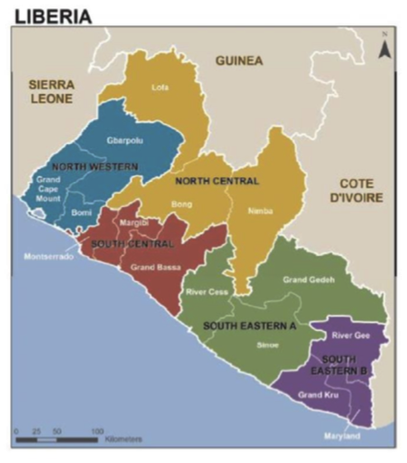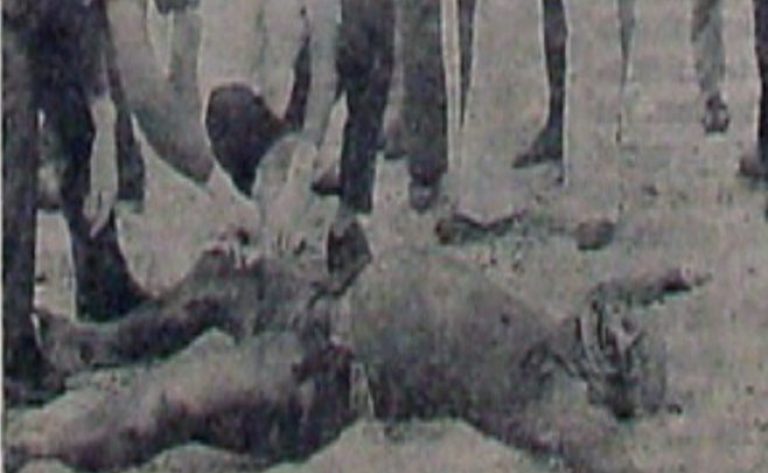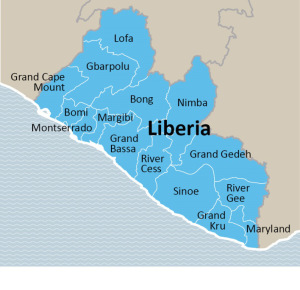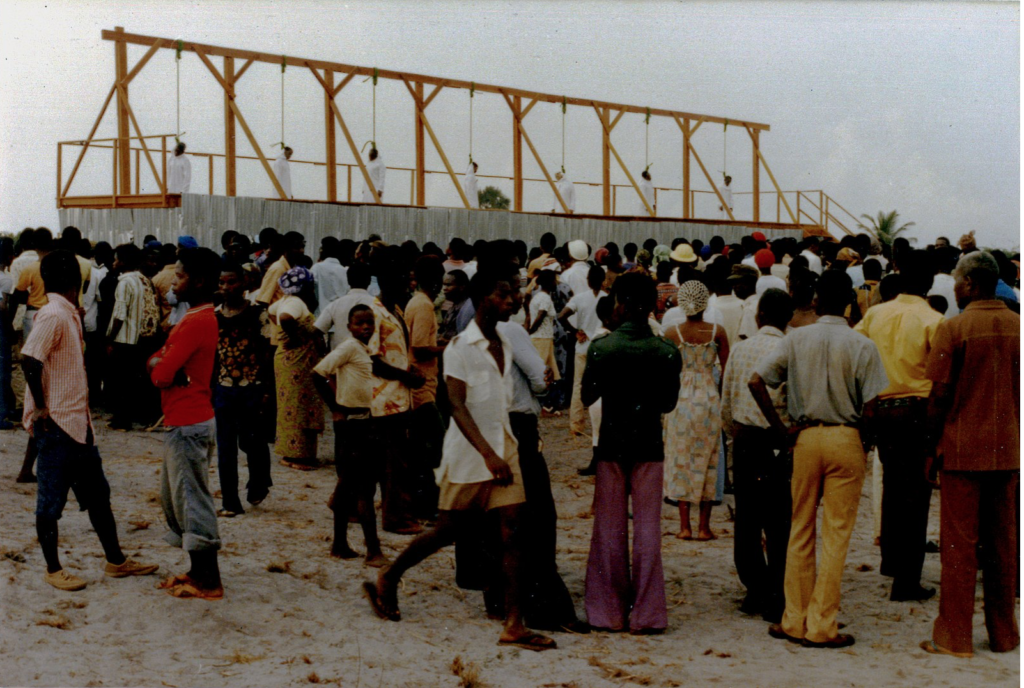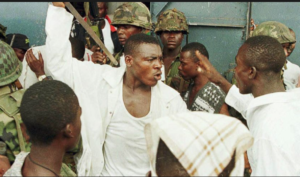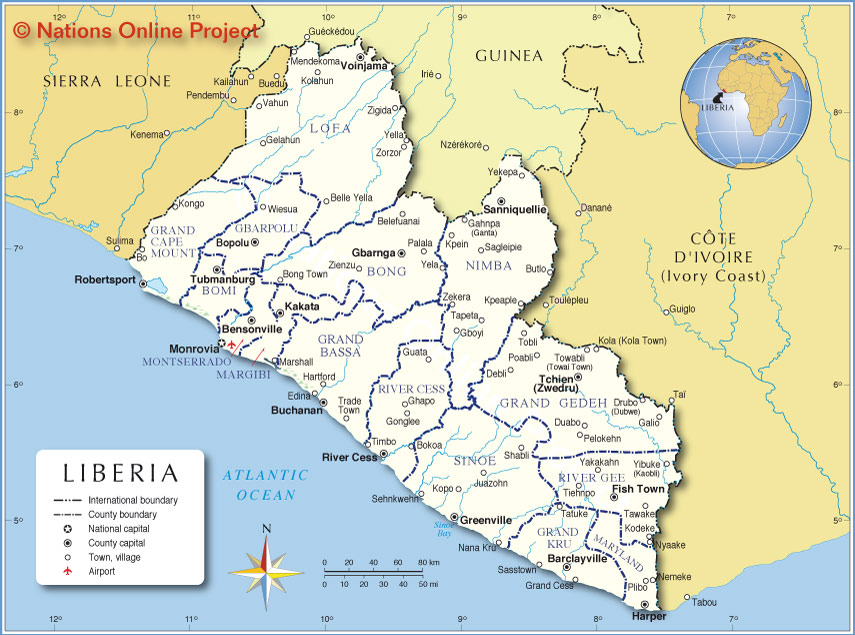Warning: graphic image
Liberia constitutes another never ending story as far as ritual killings are concerned. The reported ritual murder case below is shocking but, unfortunately, has a strong ‘seen before’ character.
The killing of Worteh Koffa is another murder in the southeastern part of Liberia, notorious for its ritualistic murders. The article below elaborates on these cases including Liberia’s most notorious ritual murder case which led to the arrest and subsequent conviction and sentencing – ‘death by hanging’ – of seven convicted rituals murderers, among whom two so-called ‘big shots’, the Superintendent of Maryland County, James Daniel Andersen (the personal representative of then Present Tolbert in this part of the country) , and the representative of Maryland County in the House of Representatives, Allen Yancy.
(webmaster FVDK)
Liberia: Gruesome Murder in Grand Kru County
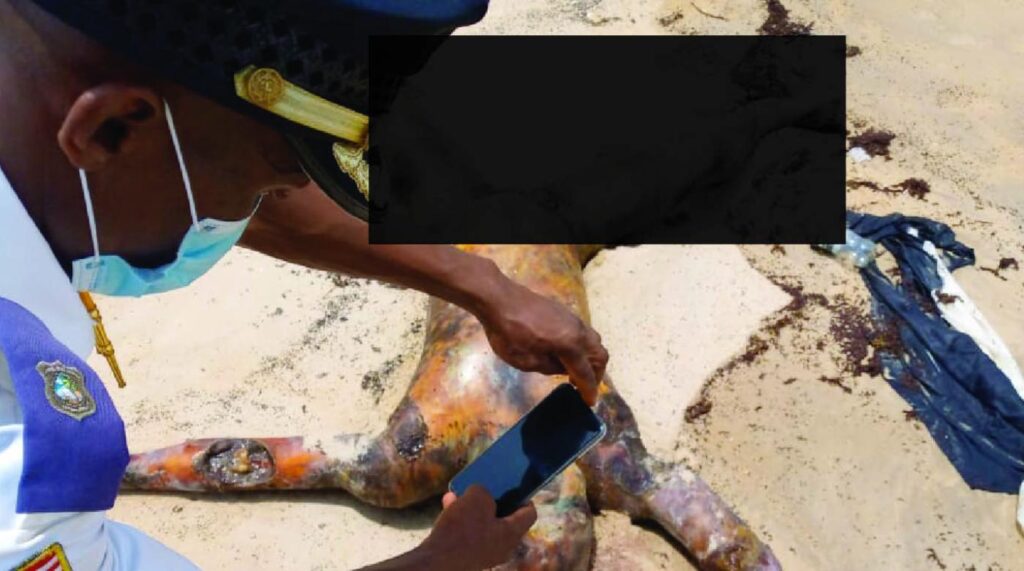
Published: May 3, 2022
By: Leroy M. Sonpon, III – Daily Observer
A man in his late 20s, named Worteh Koffa, has been found dead “with body parts missing” in Grand Kru County.
The deceased, according to a 15-man coroner jury in Grand Kru County died as a result of ritualistic killing. The coroner jury reported that the late Worteh’s eyes, tongue, fingers and toenails, and other body parts were missing upon discovery of his body in early April 2022 on the beach in Grandcess City, Grand Kru County District #1.
Worteh’s death comes just a year after a 23-years old motorcyclist named Mordecail Nyemah for ritualistic purposes in Maryland County, which is a southeastern county like Grand Kru. The deceased was discovered dead with his right eye plugged, and right fingers cut off in Pleebo during the morning hours of March 25, 2021, and it triggered a wave of violent riot both in Pleebo and the Maryland County’s capital, Harper.
Suspect Moses Mlamah said in a video interview that he was sent by a man identified as Daniel Wesseh to get blood for reasons and was paid to do so. He added that he enlisted the help of two others to carry out the act. The issue about ritualistic killings in the southeast is not anything strange with Maryland County seeing a series of ritualistic murders that occurred around Harper, in the 1970s.
Between 1965 and 1977 over 100 murders occurred in Maryland County, many of which were considered ritualistic due to the mutilation and removal of body parts. During the 1970s, Liberians in Maryland County were constantly under the threat of ritual murders. Between November 1976 and July 1977, 14 people had disappeared in the county prompting Liberian president William Tolbert to fire Superintendent of Maryland County, James Daniel Anderson, who failed to report the missing people. Tolbert publicly declared “Anyone who kills deliberately: The law will kill that person.”
These murders went unreported and uninvestigated until the murder of a local fisherman and popular singer, Moses Tweh. Tweh was abducted on June 26, 1977. His body was discovered on July 4, 1977, heavily mutilated with his eyes, ears, nose, tongue and penis removed. Prior to the discovery of Tweh’s body, Wreh Taryonnoh, the girlfriend of Assistant Supervisor of Schools, Francis Nyepan, was allegedly heard by a group searching for Tweh saying that “if they would be so lucky to find him, only his bones they might see”. This sparked the arrest of 12 people, a majority of whom were government officials.
During the first Harper Trial, Joshua Brown and Teah Toby were released and later became state witnesses. The other ten defendants were found guilty and sentenced to public execution by hanging. Tagbedi Wisseh appealed his conviction and was pardoned by Tolbert before execution. Wonplu Boye and Koti Weah both died before execution, it was rumored their own family members poisoned them to avoid shame.
On 16 February 1979, the seven remaining people convicted of Moses Tweh’s murder were publicly hanged at dawn in Harper. The media dubbed them the “Harper Seven” The crimes back then were regarded as “Liberia’s most notorious ritual killing case” due to the number of murders, the involvement of high ranking government officials and their subsequent public executions.
Meanwhile, up to press time, the Liberian National Police Detachment in Grand Kru County is still tightlipped on the investigation of Worteh’s death.
Worteh’s mother has therefore called on the government to probe the mysterious death of her son as “her family remains peaceful and awaits the outcome of any investigation. His death has caused fear among youths in the county and there appears to be a self-imposed curfew among residents of the area, fearing for their own safety.
Meanwhile, Deputy Speaker and Acting Chairman of the Grand Kru County Legislative Cllr. J. Fonati Koffa, on has condemned the gruesome and ritualistic murder of Worteh Koffa and called on the Minister of Justice to put more resources into the investigation and prosecution of the perpetrators.
On his Facebook page, the Grand Kru County District #2 lawmaker noted that: “We condemn in the strongest terms the gruesome and ritualistic murder of young Worteh Koffa. I have placed a call to the Minister of Justice to put more resources in the investigation and prosecution of the perpetrators.”
Cllr. Koffa added: “The age-old practice of ritualistic killings, for whatever purpose, must end. I call on the peaceful citizens of Grandcess to remain calm and law-abiding and assist in the investigation. No young person should have his promising life taken away by nefarious and heartless creatures. I call for a swift and speedy investigation.”
Source: Liberia: Gruesome Murder in Grand Kru County



